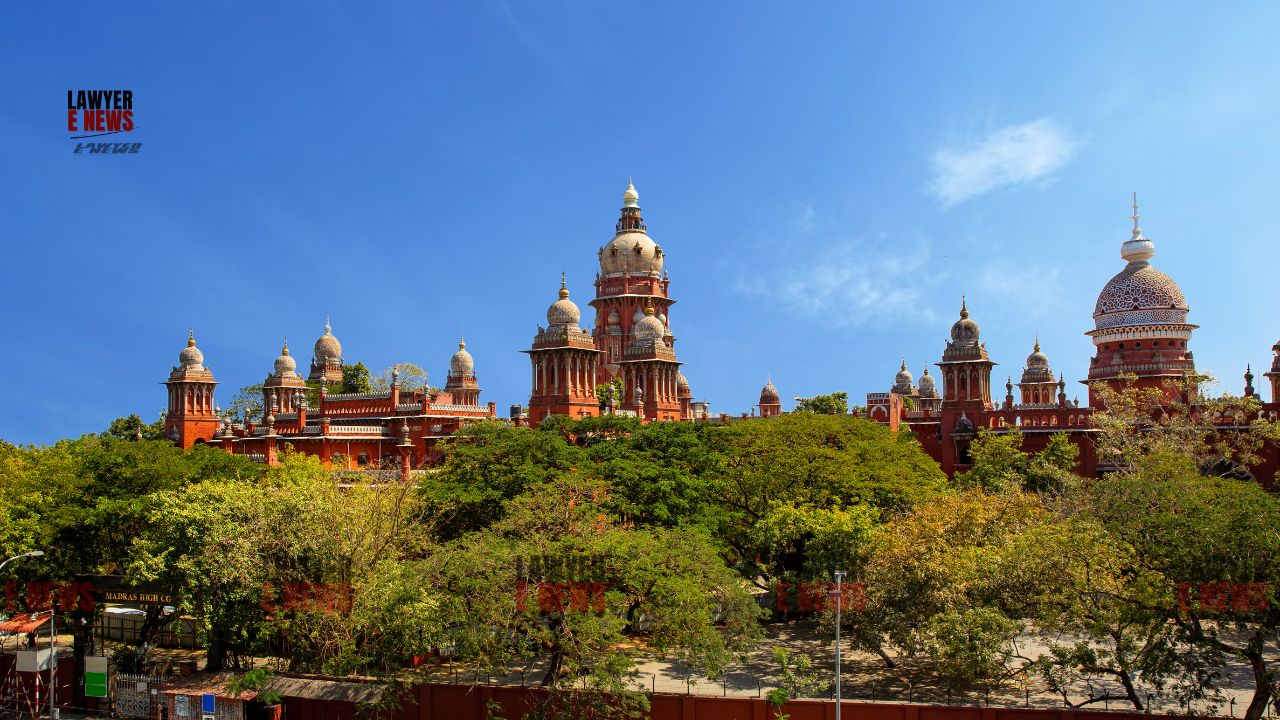-
by Admin
15 February 2026 5:35 AM



Bench reaffirms that compliance with Immoral Traffic (Prevention) Act and Constitutional protections are mandatory; compensation to be personally recovered from erring police officer.
The Madras High Court has dismissed an appeal by K. Natrajan, a police inspector, challenging a Single Judge’s order directing him to pay compensation for the unlawful detention of an Indonesian citizen during a raid on a spa in Chennai. The court underscored the importance of adhering to procedural requirements under the Immoral Traffic (Prevention) Act (ITP Act) and constitutional protections under Article 21.
The appellant, K. Natrajan, conducted a raid on the Willows Spa in Chennai, suspecting illegal activities. During the raid, Ms. Kadek Dwi Ani Rasmini, an Indonesian massage therapist, was detained. Subsequently, the FIR registered was quashed due to procedural non-compliance, leading to a writ petition filed by Rasmini seeking compensation for unlawful detention and procedural violations.
The High Court emphasized the mandatory compliance with Section 15 of the ITP Act, which outlines specific procedures for conducting raids and detentions. The court observed, “The appellant failed to record reasonable grounds of belief before conducting the raid and did not follow the mandatory procedure of having two respectable witnesses present.” This non-compliance rendered the detention of the respondent unlawful.
The court reiterated that the right to life and personal liberty under Article 21 of the Constitution extends to all individuals, including foreigners. The bench noted, “The respondent’s detention was a clear violation of her constitutional rights, leading to a loss of liberty, reputation, and mental trauma.”
The High Court upheld the compensation order of Rs. 2,50,000/- to be recovered personally from the appellant, highlighting that public funds should not be used to compensate for the wrongful acts of an individual officer. The court remarked, “For the illegalities committed by the appellant, public money cannot be spared as compensation. This serves as a deterrent against future procedural lapses.”
The court extensively discussed the principles of procedural adherence and constitutional rights. It reiterated that procedural safeguards are in place to prevent misuse of power by authorities. “Compliance with procedural protocols is not a mere formality but a safeguard against arbitrary actions,” the court stated. The judgment underscored that any deviation from these procedures must be accounted for, with appropriate reparative measures for the affected individuals.
Justice C. Kumarappan remarked, “The learned Single Judge’s findings directing the appellant to compensate the respondent are the minimum reparation for the opprobrium suffered. For the specious investigation and denigrative act of the appellant, public money cannot be spared as compensation.”
The Madras High Court’s dismissal of the appeal reinforces the judiciary’s commitment to upholding procedural integrity and constitutional rights. This judgment sends a clear message about the importance of adhering to legal protocols and the personal accountability of public officials. The ruling is expected to have significant implications for future cases involving procedural violations and unlawful detentions.
Date of Decision: 18th July 2024
